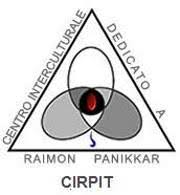
-
 History of Religions
History of the 3 Monotheistic religions (Judaism, Christianity and Islam) and of the main different Christianity confessions (Roman Catholicism, Eastern Catholicism and Eastern Orthodoxy, Anglicanism and Protestantism)
History of Religions
History of the 3 Monotheistic religions (Judaism, Christianity and Islam) and of the main different Christianity confessions (Roman Catholicism, Eastern Catholicism and Eastern Orthodoxy, Anglicanism and Protestantism)
-
 Pedagogical Approaches
New pedagogical approaches to teach history of religion
Pedagogical Approaches
New pedagogical approaches to teach history of religion
-
 Role of Religions in Civilization
How to didactically promote among students of different confessions, the capacity of a critical analysis and understanding of the role played by religions in the history of mankind
Role of Religions in Civilization
How to didactically promote among students of different confessions, the capacity of a critical analysis and understanding of the role played by religions in the history of mankind
-
 Interreligious Students’ Competences
Set of teaching contents, to be used by teachers to highlight and valorize the universal values of tolerance and universalisms that all Monotheistic religions and religious texts contain to promote and sustain mutual understanding among students
Interreligious Students’ Competences
Set of teaching contents, to be used by teachers to highlight and valorize the universal values of tolerance and universalisms that all Monotheistic religions and religious texts contain to promote and sustain mutual understanding among students
-
 Managing Multi-Religious Classes
Teaching Sources to help teachers dealing with multicultural and multi-religious classes
Managing Multi-Religious Classes
Teaching Sources to help teachers dealing with multicultural and multi-religious classes
-
 Introduction
A comparative review of the liturgical celebrations, ceremonies and dietary rules existing in the different religions.
Introduction
A comparative review of the liturgical celebrations, ceremonies and dietary rules existing in the different religions.
-
 Celebrations
Description and comparative analysis of the celebrations of different religions and confessions
Celebrations
Description and comparative analysis of the celebrations of different religions and confessions
-
 Ceremonies
Description and comparative analysis of the ceremonies of different religions and confessions
Ceremonies
Description and comparative analysis of the ceremonies of different religions and confessions
-
 Dietary Rules
Description and comparative analysis of the dietary rules of different religions and confessions
Dietary Rules
Description and comparative analysis of the dietary rules of different religions and confessions
Events
The Pathway through Religions project has been promoted trough conferences and articles.
Partnership
-
 Contractual Partners
From this section it is possible to access to a description of each contractual partner of the Pathway through Religions project.
Contractual Partners
From this section it is possible to access to a description of each contractual partner of the Pathway through Religions project.
-
 Schools
From this section it is possible to access to the information about the schools involved in the Pathway through Religions Project in the European countries involved.
Schools
From this section it is possible to access to the information about the schools involved in the Pathway through Religions Project in the European countries involved.
-
 Associated Partners
As a result of the exploitation activity a number of associated partners officially joined the project in order to contribute to the improvement of the project impact on their target groups and to ensure the project sustainability by continuing using the project deliverables in the next years.
Associated Partners
As a result of the exploitation activity a number of associated partners officially joined the project in order to contribute to the improvement of the project impact on their target groups and to ensure the project sustainability by continuing using the project deliverables in the next years.
This section of the Pathway through Religions portal provides administrative information for the project contractual partners and for the European Commission and it is password protected.
Map
Homepage > ReligiousSite Map > Map

An interactive didactical map interactive didactical map giving access to sites with a religious relevance.
Back to the Religious Sites List

CIRPIT Intercultural Center dedicated to Raimon Panikkar
Località Tarucolo, 230 - 52048 Monte San Savino (Ar) - ITALY
DESCRIPTION OF THE RELIGIOUS SITE
presentation of the book by R. PNIKKAR, The Tower of Babel. Peace and pluralism, Culture of Peace editions, 1990.
In this volume the author argues against what he calls "colonial pacifism", produced by the "armed reason" of rich countries. According to Panikkar, offering a solution can only be a complex and pluralistic cultural model.
Centro Astalli - JRS Jesuit Refugee Service in Italy - Via degli Astalli 14/a - 00186 Roma - ITALY
Community of Sant'Egidio - Piazza Sant'Egidio 3a, 00153 Roma - ITALY
Inter-religious Museum of Bertinoro - Via Frangipane, 6 - 47032 Bertinoro (FC) - ITALY
The Arsenal of Peace - 61, Piazza Borgo Dora - 10152 Torino - ITALY
- Role of Religions in Civilization - Religion Supporting the Creation of Music
- Building Students’ Interreligious Competences in Communication and Adaptation in a Cross-Cultural Environment - Religion as a Source of Inclusion and Peace
- Building Students’ Interreligious Competences in Communication and Adaptation in a Cross-Cultural Environment - Interfaith Map of the Local Community
- Building Students’ Interreligious Competences in Communication and Adaptation in a Cross-Cultural Environment - Recognizing and Developing the Positive Potential
- Building Students’ Interreligious Competences in Communication and Adaptation in a Cross-Cultural Environment - Making Judgements – The Role of Religion and Cultural Traditions
VIDEOS
-
Intercultural Centre Raimon Panikkar
Intercultural Centre Raimon Panikkar http://www.asfer.it/interventi/item/36470-Centro%20Interculturale%20Raimon%20Panikkar Report of a meeting with Raimon Panikkar a few months before his death.
-
Passagge to Asia
Passagge to Asia Interview with Raimon Panikkar.
-
Raimon Panikkar, looking for God by living astride
Raimon Panikkar, looking for God by living astride Intervista a Raimon Panikkar.
LINKS
-
Intercultural Centre Raimon Panikkar
Intercultural Centre Raimon Panikkar Photo exhibition on CIRPIT
